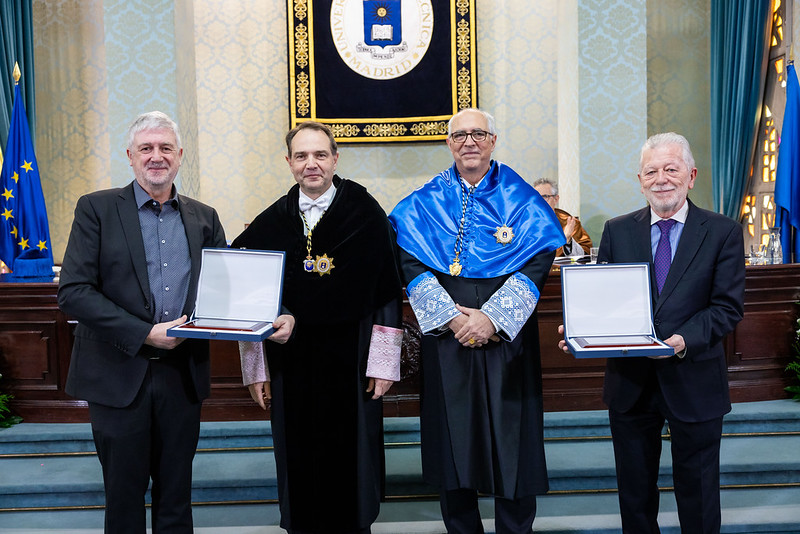Fernando Calle and Narciso García jointly receive the UPM Research Award.

Fernando Calle and Narciso García, full professors at the Escuela Técnica Superior de Ingenieros de Telecomunicación (ETSIT), have been jointly awarded the Research Prize of the Universidad Politécnica de Madrid (UPM). The accolade, which they received on 28 January at the commemorative ceremony for the Feast of Saint Thomas Aquinas, recognises their outstanding contributions to their respective fields. Calle is an international authority in microelectronics, semiconductor devices and graphene, while García has spearheaded the creation of a research school in digital image and video processing. Candidates for the Research Prize must be professorial staff with at least 25 years of permanent affiliation to UPM.

Fernando Calle (left) and Narciso García pose with their award plaques alongside the Rector and the Vice-Rector for Research and Doctorate.
Fernando Calle
The jury highlighted Calle’s cutting-edge scientific output and his involvement in competitive projects with companies and international institutions of significant socio-economic impact. They also noted his commitment to training new generations of researchers in his areas of expertise.
For Calle, the award “recognises the work, passion and dedication to research over several decades.” He states that receiving it “allows me to thank UPM for having welcomed me 34 years ago.” Moreover, the prize “gives me the opportunity to offer it to my mentors, colleagues and research students at the Institute of Optoelectronic Systems and Microtechnology (ISOM), the Department of Electronic Engineering (DIE), ETSIT, UPM as a whole and the Universidad Autónoma de Madrid (UAM), where I trained, as well as to collaborators from many other institutions with whom I have worked— for what I have learned and because their perspectives and contributions have enriched every project,” he adds. His most personal gratitude is reserved for his family: “to whom I owe so much, especially my wife Lucina and my daughter María, whose patience and encouragement are always fundamental to moving forward.”
Calle earned a PhD in Physical Sciences from UAM in 1990 and has been a professor of Electronics and Nanotechnology at UPM since 1992, teaching on the Telecommunications Engineering and Materials undergraduate and master’s programmes. He has undertaken research stays at the Max Planck Institute for Solid State Research (Germany) and at Bell Labs (USA). In addition to serving on numerous teaching and research committees, he sits on the organising committees of several international conferences. He has held the positions of Deputy Director of Research at ETSIT and Director of ISOM, as well as Deputy Vice-Rector for Doctoral Studies and Research and Head of the Semiconductor Devices Group. He has achieved six teaching-activity periods, six research-activity sexenios and one technological transfer sexenio.
Narciso García
García began his research activity fifty years ago “with the development of a new multiple-root FFT (Fast Fourier Transform) algorithm,” as he explains. “I entered the then-novel field of digital signal processing as a preliminary step to my specialisation in digital image processing, first, and in digital video processing thereafter. Subsequently, I moved into new areas (video compression, computer vision, (ultra)high resolution, real time) that have culminated in extended reality, immersive environments and interaction-quality assessment.”
The award granted by UPM recognises García’s lengthy professional, research and technology‐transfer career, during which he has contributed to the development of international standards and norms in his field as well as excelled in training new researchers. The distinction is “a source of immense joy and satisfaction,” says the recipient. “Regardless of what the future holds, my research activity has been an exciting adventure in which I have given much—creating solid and stable structures and contributing to the progress of our university. However, the constant interaction with my mentors, colleagues and students has given me far more, so, I admit, I have gained the most from this process and the result has been incomparably greater than any visionary idea I might have had fifty years ago.”
García earned his degree in Telecommunications Engineering in 1976 (top of his class and recipient of the National End-of-Studies Award) and his doctorate in Telecommunications Engineering in 1983 (with distinction cum laude and Award for Outstanding Doctoral Thesis), both from ETSIT. He is Professor of Signal Theory and Communications in the Department of Signals, Systems and Radiocommunications, which he formerly directed, and he coordinates the Image Processing Group. In addition to serving as Vice-Rector for International Relations, he has been General Coordinator of the National Evaluation Commission for Research Activity (CNEAI) and Coordinator of the Information and Communications Technologies Area at the National Agency for Evaluation and Foresight, as well as a member of the Advisory Committee on Unique Infrastructures (CAIS). He also directed the Spanish delegation to the Management Committee for the Information Society Technologies Programme of the Fifth Framework Programme for Research and Development of the European Union. Furthermore, he has acted as evaluator, reviewer and auditor for various European Union programmes and as an independent observer for its Thematic Programme on Information Society Technologies (IST).
Source: https://short.upm.es/xdpi7, originally published at its source on 29 January 2025, based on a UPM communication.
Share this:
Latest news



Categories

